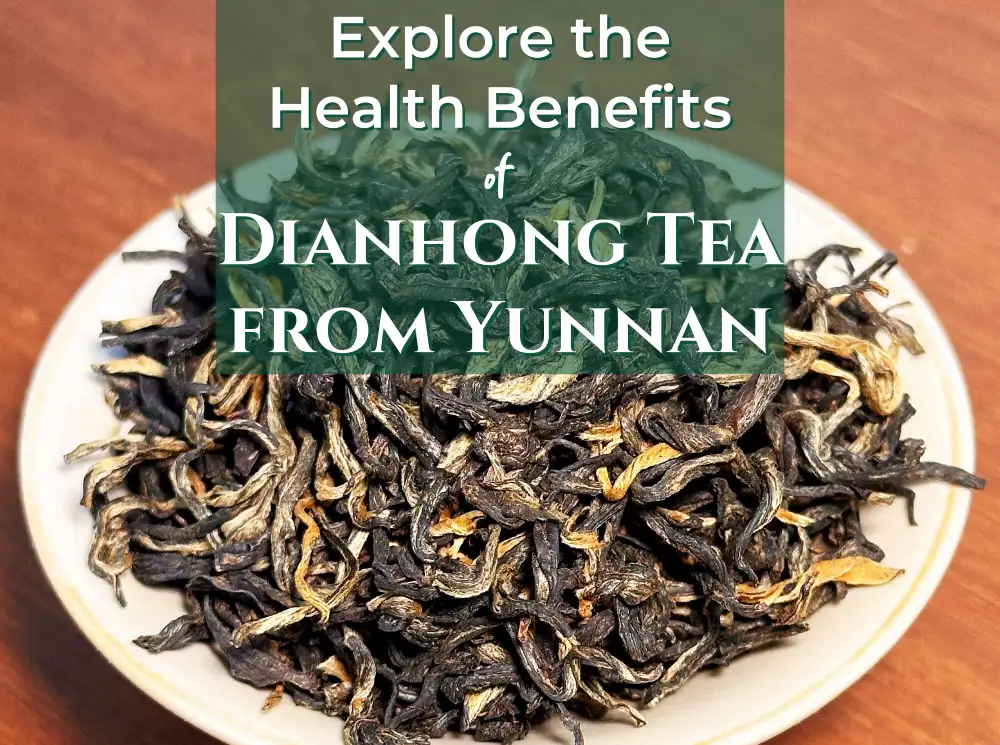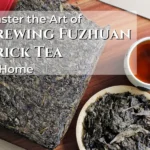Dianhong, also known as Yunnan Dianhong or Dianhong Tea from Yunnan, is a momentous black tea that has captivated devotees worldwide with its unique flavor profile and various well-being benefits. This excellent tea, eminent for its Dianhong Tea with Nectar Notes, begins in the pleasant Yunnan territory in southwestern China. In this comprehensive article, we’ll dive into the well-being benefits of this extraordinary tea and investigate why it has become a staple in numerous tea lovers’ collections.
The Origins and Characteristics of Dianhong Tea
Dianhong tea has a rich history dating back to the 1930s, when it was first created in the Yunnan area. The title “Dianhong” itself confirms its roots, with “Dian(滇)” being the brief title for Yunnan and “hong(红)” meaning ruddy, alluding to the color of the tea. This full-bodied black tea is made from the large-leaf assortment of the Camellia sinensis plant, which is native to Yunnan.
What sets Dianhong apart is its distinctive flavor profile. The tea is celebrated for its Dianhong Tea with Honey Notes, offering a smooth, malty taste with subtle hints of chocolate and caramel. The aroma is equally enticing, with nuances of pine and cedar that transport you to the misty mountains of Yunnan. The liquor of Dianhong tea ranges from a bright reddish-gold to a deep ruby, depending on the specific variety and brewing method.
Yunnan Dianhong is available in various grades, from the premium golden tip varieties to the more robust broken-leaf types. The golden tip Dianhong, characterized by its abundance of golden buds, is particularly prized for its refined flavor and aroma. Regardless of the grade, Dianhong Tea from Yunnan consistently delivers a satisfying and nurturing tea experience.
Health Benefits of Dianhong Tea
Dianhong tea isn’t just a treat for your taste buds; it’s also a boon for your overall health. Let’s explore some of the key health benefits associated with regular consumption of this remarkable tea:
| Health Benefit | Description |
|---|---|
| Antioxidant Powerhouse | Rich in polyphenols, including theaflavins and thearubigins. Supports heart health, fights free radicals, and may reduce chronic diseases. |
| Digestive Health Support | Tannins soothe the digestive tract, reduce inflammation, and alleviate digestive discomfort. May help with bloating after meals. |
| Mental Alertness and Cognitive Function | Caffeine and L-theanine improve focus and mental readiness, promoting relaxation and possibly preventing age-related cognitive decline. |
| Immune System Boost | Antioxidants and catechins strengthen the immune system, help fight infections, and have antimicrobial properties. |
| Stress Reduction and Relaxation | L-theanine promotes relaxation, reduces stress and anxiety, and helps achieve a sense of calm when consumed regularly. |
| Potential Weight Management Aid | Polyphenols may boost metabolism and aid in fat oxidation, contributing to healthy weight maintenance as part of a balanced diet. |
| Oral Health Benefits | Natural fluoride and antibacterial polyphenols support stronger teeth and reduce harmful bacteria, lowering the risk of cavities and gum disease. |
Antioxidant Powerhouse
Like other black teas, Dianhong is rich in polyphenols, especially theaflavins and thearubigins. These capable cancer prevention agents help combat free radicals in the body, possibly decreasing the chance of inveterate infections and abating the maturing handle. The cancer prevention agents in Dianhong tea may also improve heart well-being by reducing LDL cholesterol levels and supporting solid blood vessel work.
Digestive Health Support
The tannins in Dianhong tea can positively impact digestive health. They may help soothe the digestive tract, reduce inflammation, and alleviate symptoms of digestive discomfort. Some tea enthusiasts report that drinking Yunnan Dianhong tea after meals aids digestion and helps prevent bloating.
Mental Alertness and Cognitive Function
Dianhong tea contains caffeine and L-theanine, a unique combination that can improve mental readiness without the anxious impacts regularly related to coffee. L-theanine advances unwinding and can assist in making strides in center and concentration. Normal utilization of Dianhong tea may contribute to superior cognitive work and possibly decrease the chance of age-related cognitive decay.
Immune System Boost
The antioxidants and other beneficial compounds in Dianhong tea can help strengthen the immune system. Regular consumption may enhance the body’s ability to fight infections and illnesses. Some studies suggest that the catechins in black teas like Dianhong may have antimicrobial properties, further supporting immune health.
Stress Reduction and Relaxation
Brewing and sipping Dianhong tea can be a meditative experience, promoting relaxation and stress relief. The tea’s L-theanine content may also contribute to reduced stress and anxiety levels. Many tea drinkers find that incorporating Dianhong tea into their daily routine helps them unwind and achieve a sense of calm.
Potential Weight Management Aid
While not a miracle weight loss solution, Dianhong tea may support weight management efforts. The polyphenols in black tea have been shown to potentially boost metabolism and aid in fat oxidation. When consumed as part of a balanced diet and healthy lifestyle, Dianhong tea could contribute to maintaining a healthy weight.
Oral Health Benefits
The natural fluoride content in Dianhong tea may contribute to stronger teeth and improved oral health. Additionally, the antibacterial properties of tea polyphenols could help reduce the growth of harmful bacteria in the mouth, potentially lowering the risk of cavities and gum disease.
Incorporating Dianhong Tea into Your Wellness Routine
To fully enjoy the health benefits of Dianhong Tea from Yunnan, consider incorporating it into your daily wellness routine. Here are some tips to help you make the most of this exquisite tea:
Optimal Brewing Techniques
It’s crucial to brew Dianhong tea correctly to extract its full flavor and benefits. Use water heated to about 90-95°C (194-203°F) and steep the leaves for 3-5 minutes. This will allow the tea to release its complex flavors and beneficial compounds without becoming overly bitter. Experiment with steeping times to find your perfect balance of strength and flavor.
Pairing with Healthy Snacks
Pair your Dianhong tea experience with nutritious snacks. The tea’s honey notes and malty flavor complement various foods. Try it with fresh fruits, nuts, or whole-grain crackers for a satisfying and health-conscious tea time.
Explore Different Varieties
Dianhong tea comes in various grades and styles. Explore different options to find the ones that appeal most to your palate. From the delicate golden tip varieties to the more robust broken leaf types, each offers a unique experience and potentially different health benefits.
Conclusion
In conclusion, Dianhong, with its rich flavor profile and numerous health benefits, is more than just a beverage – it’s a holistic wellness experience. From its antioxidant properties to its potential cognitive benefits, Dianhong Tea from Yunnan offers many reasons to make it a part of your daily routine. Whether you’re a seasoned tea connoisseur or new to fine teas, Dianhong’s Dianhong Tea with Honey Notes and a complex flavor profile make it a delightful and healthful choice. So, brew a cup of this golden elixir, sit back, and let Yunnan Dianhong’s magic work wonders on your body and mind.
We serve thousands of satisfied tea enthusiasts in our tea house each year, and we’re excited to share these exceptional teas with tea lovers worldwide at Orientaleaf.com.

References
- Khan, N., & Mukhtar, H. (2013). Tea and health: studies in humans. Current pharmaceutical design, 19(34), 6141-6147.
- Larsen, F. J., Schiffer, T. A., Borniquel, S., Sahlin, K., Ekblom, B., Lundberg, J. O., & Weitzberg, E. (2011). Dietary inorganic nitrate improves mitochondrial efficiency in humans. Cell metabolism, 13(2), 149-159.
- Vuong, Q. V. (2014). Epidemiological evidence linking tea consumption to human health: a review. Critical reviews in food science and nutrition, 54(4), 523-536.
- Yang, C. S., Wang, H., & Sheridan, Z. P. (2018). Studies on prevention of obesity, metabolic syndrome, diabetes, cardiovascular diseases and cancer by tea. Journal of food and drug analysis, 26(1), 1-13.
- Zhang, L., Ho, C. T., Zhou, J., Santos, J. S., Armstrong, L., & Granato, D. (2019). Chemistry and biological activities of processed Camellia sinensis teas: A comprehensive review. Comprehensive Reviews in Food Science and Food Safety, 18(5), 1474-1495.


